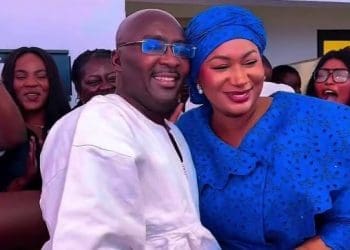The management of J.A. Plant Pool (Ghana) Limited (JAPP) has attributed the alleged US$2 million overpayment in the District Roads Improvement Programme (DRIP) contract to a clerical error in official documentation.
This follows recent remarks by the Attorney-General and Minister for Justice, Dr Dominic Ayine, who reaffirmed his earlier claims of overpayment and financial irregularities involving JAPP under the DRIP contract.
Speaking at the Government Accountability Series on Wednesday, 22 October 2025, Dr Ayine said the alleged overpayment was uncovered during a forensic review of the US$176 million contract awarded to the company.
In response, JAPP, in a statement, dismissed the Attorney-General’s allegations of overpayment, tax evasion, and over-invoicing.
The company described Dr Ayine’s public comments as “unfortunate,” arguing that they presented a one-sided account that could damage its reputation.
“The disclosure presents a partial narrative of the issues and risks tarnishing the company’s hard-earned reputation built over years of diligent service to the Government and people of Ghana,” the company stated.
Addressing the specific claim that the government overpaid JAPP by US$2 million, the company clarified that the approved and executed contract sum was US$178,704,739.50 — not US$176 million, as alleged.
“It is factually incorrect to assert that the contract sum was USD 176 million. The official contract amount, duly executed by all parties, remains USD 178,704,739.50,” JAPP said.
According to the company, the alleged overpayment arose from a clerical error in the Public Procurement Authority’s (PPA) approval letter concerning one of the equipment line items. JAPP said the discrepancy was promptly reported to the approving authorities for correction.
The firm maintained that all transactions under the DRIP contract were lawful, transparent, and duly approved through established government channels, stressing that it should not be held accountable for administrative or typographical mistakes by state institutions.
On claims of GHS 38.7 million in tax evasion, JAPP asserted that all its imports were properly declared to the Ghana Revenue Authority (GRA) and placed under bonded warehouse supervision.
“The claim that JAPP imported and cleared 190 pieces of equipment under false tax exemption claims is incorrect. Only 99 semi-knocked-down components were imported to support maintenance operations, not for separate commercial gain,” it stated.
The company also denied allegations of inflated pricing and over-invoicing, insisting that the contract offered competitive rates and value for money.
“The US$178 million contract for 2,420 units was, in fact, value for money,” the statement noted, citing a comparison with a previous government procurement of similar equipment valued at US$1.3 billion.
JAPP further highlighted the DRIP project’s positive impact on national development, noting that it has created over 11,000 jobs, trained 4,000 local mechanics, and established mobile maintenance units in all 16 regions.
“These interventions have had a transformational socio-economic impact, enhancing local expertise, creating employment, and retaining technical value within the Ghanaian economy,” JAPP added.
The company reaffirmed its commitment to transparency, accountability, and continued collaboration with government agencies to ensure that the DRIP project delivers sustainable value to Ghana’s development agenda.












